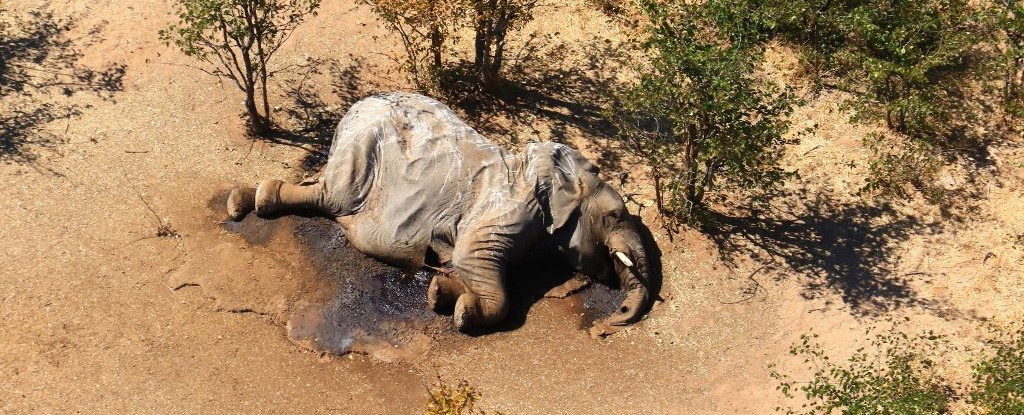Wildlife officials in Botswana have finally cracked he the mystery that has seen more than 300 elephants dead since January at the Okavango Delta.
On Monday, the officials made public the contents of a probe into the deaths of the elephants saying that they found cyanobacteria which produce toxins in water which was responsible for the killing of the jumbos.
Botswana’s deputy director of the Department of Wildlife and National Parks Cyril Taolo in a press briefing said in May, 330 elephants had died.
“What we just know at this point is that it’s a toxin caused by cyanobacteria,” he said according to Reuters.
However, with this discovery, the specific type of neurotoxin is yet to be established.
Taolo said that there have been no deaths reported lately saying that the government will remain on high alert in monitoring the situation for Botswana wildlife during the oncoming rainy season.
There are now questions as to why only elephants were affected by the toxins in the water yet other animals in the Okavango Delta took the same water.
Botswana’s Wildlife department’s principal veterinary officer Mmadi Reuben termed this as baffling.
According to the Intergovernmental Panel on Climate Change, temperatures in Southern Africa are rising fast at twice the global average which encourages the thriving of cyanobacteria.
“It amounts to having the right conditions, in the right time, in the right place and these species will proliferate,” Patricia Glibert, a professor at the University of Maryland Center for Environmental Science, who has studied cyanobacteria, told Reuters.
“These conditions are coming together more often, in more places, so we are seeing more of these toxic blooms around the world.”
The mystery of the elephants’ death is not only in Botswana as neighbouring Zimbabwe had also reported 25 deaths for its elephants.
Park officials where the elephants were found dead hypothesized that they could have taken water with the toxins since they were found near a river where they had been quenching their thirst.
“We considered the possibility of cyanobacteria but we have no evidence that this is the case here (in Zimbabwe),” said Chris Foggin, a veterinarian at the Victoria Falls Wildlife Trust, which tested samples from dead elephants from Zimbabwe and Botswana.
Read more:
Botswana grappling with death of 154 elephants in two months








